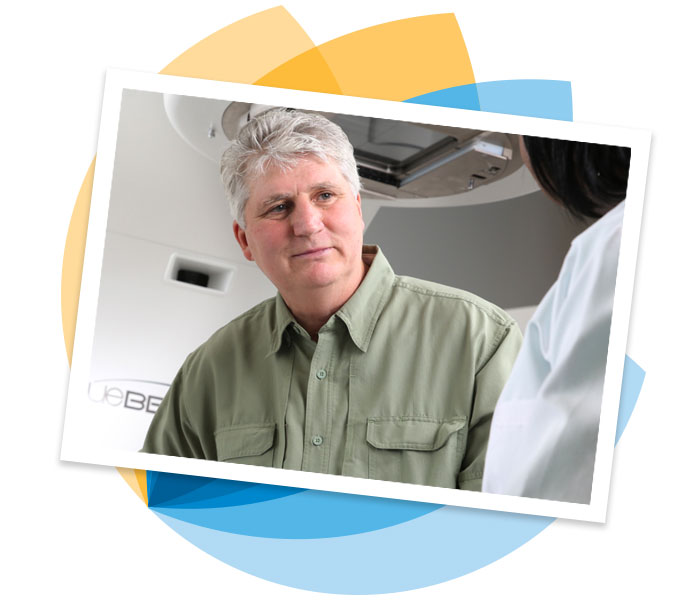Lung Cancer Care
Lung cancer begins when cells in a lung become abnormal and begin growing out of control. When the abnormal cancer cells grow, they can form into a tumor and even spread to other areas of the body (metastasize). A lung cancer specialist will guide you through the next steps.

Latest Treatments for Lung Cancer
Review this section's important information about lung cancer diagnosis, staging, and treatment options, as well as lung cancer patient and survivor resources as you prepare for an appointment with your oncologist. After reviewing these sections, ask your cancer care team any additional questions that you may have about your individual situation.
Newly Diagnosed with Lung Cancer
If your doctor suspects you may have lung cancer, they will order tests to look for cancerous cells and make a lung cancer diagnosis. Your doctor might recommend various tests, including a chest x-ray, biopsy, sputum cytology or imaging tests to diagnose either Non-Small Cell or Small Cell Lung Cancer.
Lung Cancer Risk Factors
A risk factor is anything that affects a person’s chance of developing a disease, such as cancer. Risk factors differ from cancer to cancer. Some, like smoking, can be changed, others, such as age or genetics, cannot.
Types of Lung Cancer
There are two types of lung cancer, Small Cell Lung Cancer (SCLC) and Non-Small Cell Lung Cancer (NSCLC), named based on the type of cells found in the cancer and how the cells appear viewed under a microscope.
Stages of Lung Cancer
Cancer staging is the process of gathering information to determine the location and extent of the lung cancer and if it has spread to other parts of the body.
Lung Cancer Treatment Options
Your type and stage of your lung cancer, as well as various other factors, will dictate your treatment plan. The lung cancer doctors at NYOH work together with you to develop your treatment plan. Your treatment options may include surgery, chemotherapy, radiation therapy, immunotherapy, laser therapy, endoscopic stent placement, or targeted therapy.
Lung Cancer Support Services
From support groups to chemotherapy classes, hereditary risk assessment to financial support through our NYOH Community Cancer Foundation, the cancer specialists at New York Oncology Hematology are here for you every step of the way. We encourage you to learn more and take advantage of our supportive care services.
Compassionate Lung Cancer Care in the Capital Region
If you or your loved one is ready to meet with a lung cancer specialist, our team is here to help. Start by requesting an appointment at a location that's convenient for you.
Lung Cancer Research & Clinical Trials
New York Oncology Hematology cancer researchers, partnered with the US Oncology Network, lead the way in finding new cancer treatment options through clinical trials at all NYOH locations.
We are always looking for the latest cancer treatment options for our patients and are also involved with many other types of breakthrough lung cancer research studies. Click for a full list of our available lung cancer research studies.